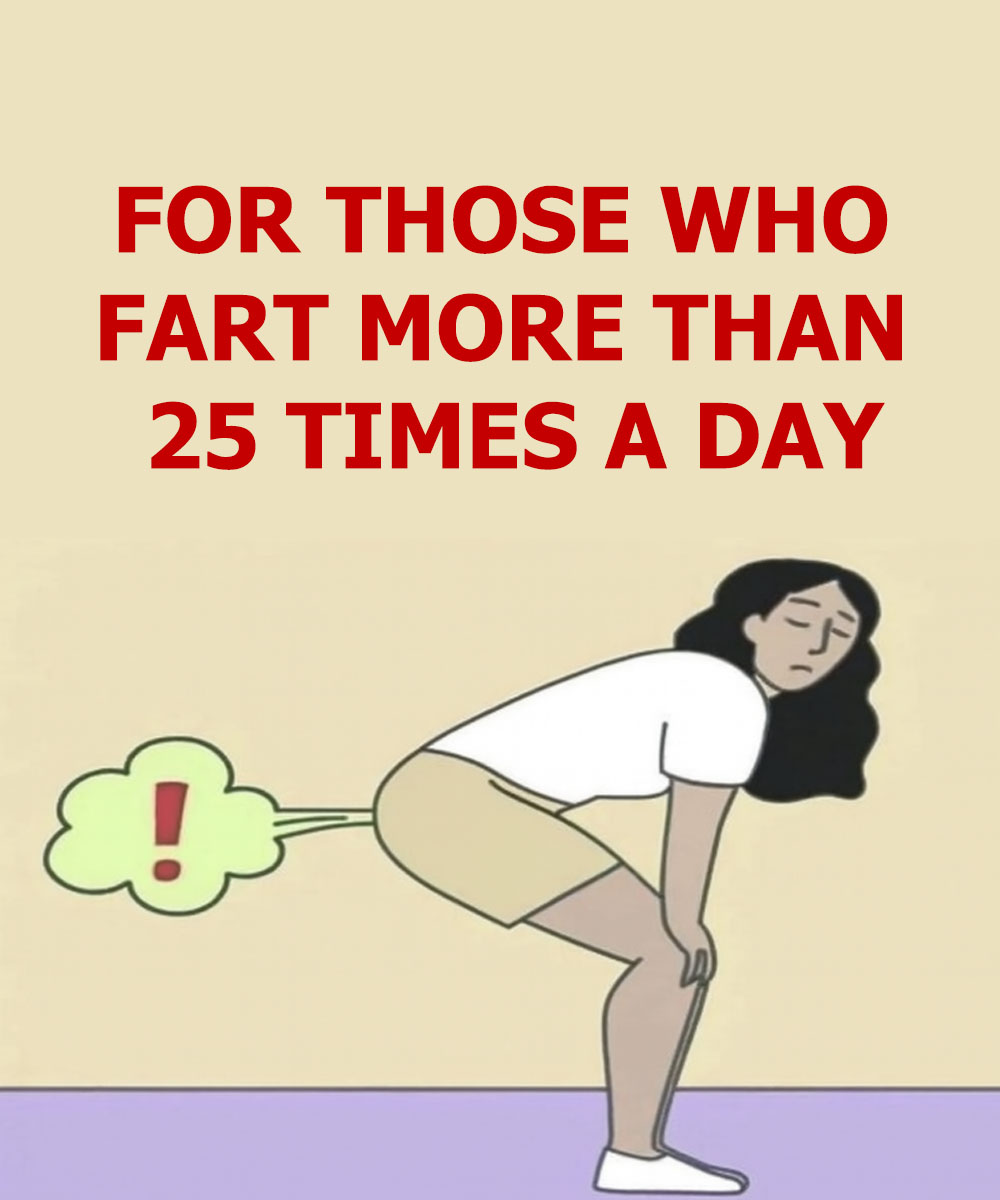Let’s be honest—passing gas might be a little embarrassing, but it’s something we all do. In fact, farting, or flatulence, is a completely normal part of digestion. On average, a person farts about 14 to 25 times a day. That said, if you’re noticing more frequent gas than usual, especially if it’s paired with other digestive symptoms, it might be your body’s way of telling you something’s off.

So, what exactly is farting? Farting is the release of gas from the digestive tract through the rectum. This gas forms when your body breaks down food or when you swallow air while eating or drinking. Most of the time, it’s harmless—but if it becomes excessive, it might be worth taking a closer look.
When Is Farting Considered “Too Much”?
If you find yourself passing gas more than 25 times a day regularly, and especially if it’s accompanied by discomfort, bloating, or other digestive issues, you might be dealing with excessive flatulence. While it doesn’t always indicate a serious health problem, it can be linked to certain underlying conditions or lifestyle factors.
Common Reasons You’re Gassier Than Usual
1. Your Diet Is Gas-Producing
Certain foods are notorious for creating gas during digestion. These include:
-
Beans and lentils
-
Cruciferous vegetables like broccoli and cabbage
-
Onions and garlic
-
Carbonated drinks (soda, sparkling water)
-
Foods containing sugar alcohols (like sorbitol and mannitol, found in many sugar-free products)
-
Dairy products (especially if you’re lactose intolerant)
-
Foods with high-fructose corn syrup or excessive fructose
Even healthy foods can lead to gas, especially if your body has trouble breaking them down.
2. You’re Swallowing Too Much Air
This might sound strange, but it’s true. You might be unintentionally swallowing air throughout the day, a condition called aerophagia. This often happens when:
-
You eat or drink too quickly
-
You chew gum frequently
-
You use straws
-
You talk while eating
-
You smoke
All that extra air has to go somewhere, and for many people, it exits in the form of gas.
3. You Have Food Intolerances
If your body struggles to digest certain ingredients, it can result in gas, bloating, and other uncomfortable symptoms. Common culprits include:
-
Lactose intolerance – trouble digesting dairy
-
Gluten intolerance or Celiac disease – inflammation and gas due to gluten
-
FODMAP sensitivity – short-chain carbohydrates that ferment in the gut and cause gas
4. You Might Have a Digestive Disorder
Sometimes, chronic farting is linked to a more serious issue in your digestive system. Potential conditions include:
-
IBS (Irritable Bowel Syndrome): Can lead to frequent gas, cramping, and changes in bowel habits
-
SIBO (Small Intestinal Bacterial Overgrowth): Too many bacteria ferment food in the wrong part of your gut
-
Celiac disease: An immune reaction to gluten that damages the digestive tract
-
GERD (Acid reflux): May cause increased swallowing and air intake
-
Pancreatic insufficiency: When your pancreas doesn’t release enough enzymes to break down food, fermentation and gas follow
5. Certain Medications Can Be to Blame
Believe it or not, some common medications can disrupt your gut and lead to extra gas. These include:
-
Antibiotics (which upset your gut bacteria)
-
Laxatives
-
Metformin (a drug for type 2 diabetes)
-
High-fiber supplements
When Should You Talk to a Doctor?
Gas alone isn’t usually a reason to panic, but if you’re experiencing other symptoms, it’s best to check in with your doctor. Watch out for:
-
Persistent bloating or abdominal discomfort
-
Diarrhea or constipation
-
Unexplained weight loss
-
Blood in your stool
-
Fatigue or weakness
-
Loss of appetite
-
Sudden dietary changes that made things worse
Your provider might run a few tests to get to the root of the problem, such as:
-
Hydrogen breath tests (for lactose intolerance or SIBO)
-
Celiac blood panel
-
Stool tests to check for infections or malabsorption
-
Endoscopy or colonoscopy in more serious or chronic cases
Tips to Tame Excessive Farting
Luckily, there are plenty of simple lifestyle changes that can help reduce gas and improve your digestion:
-
Keep a food diary. Tracking what you eat can help pinpoint the foods causing trouble.
-
Try a low-FODMAP diet. This is especially useful for people with IBS or FODMAP sensitivity.
-
Eat slowly and chew thoroughly. This helps reduce swallowed air and supports digestion.
-
Add probiotics. They help rebalance your gut bacteria and improve digestion.
-
Avoid gas-triggering foods. Temporarily cutting back on problem foods can provide relief.
-
Get regular exercise. Movement helps gas pass through your digestive system more smoothly.
-
Consider digestive enzymes or lactase supplements. These can help break down foods like dairy or high-fiber veggies if your body struggles with them.
Final Thoughts
Passing gas is normal—but if your toots are starting to take over your day (or make you uncomfortable around others), it might be time to reassess what’s going on with your gut. A few small changes in diet and habits can often make a big difference, but don’t hesitate to talk to a doctor if something feels off. Your digestive system may be trying to send you a message, and it’s always a good idea to listen.





